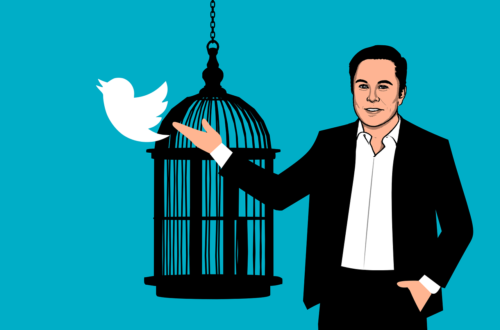
Elon Musk is one of the most famous entrepreneurs and visionaries of our time. He’s the force behind Tesla, SpaceX, Neuralink, and other groundbreaking projects shaping the future. People admire him for his bold ideas and fearless pursuit of innovation. But even someone as influential as Musk faces personal challenges, including struggles with mental health.
Recently, there have been rumors and public discussions about Elon Musk’s use of ketamine. Some people have asked: Is Elon Musk addicted to ketamine? This question has sparked curiosity and debate. In this article, we’ll take a clear, honest look at the facts, the myths, and what Musk himself has shared.
What Is Ketamine?
To understand why this question comes up, it’s important to know what ketamine actually is. Ketamine is a drug that was first developed in the 1960s as an anesthetic, used in surgeries to safely sedate patients without causing serious harm. Its ability to quickly dull pain and induce a trance-like state made it useful in medical procedures.
But over the years, researchers discovered another surprising property: ketamine has strong antidepressant effects. For people who suffer from severe depression—especially cases that don’t respond to traditional antidepressants—ketamine can provide rapid relief. Because of this, ketamine is now sometimes used in controlled medical treatments for mental health conditions.
At the same time, ketamine is also known as a recreational drug, sometimes called “Special K,” and abused for its hallucinogenic and dissociative effects. This dual nature—both a medicine and a party drug—causes confusion and stigma.
How Musk’s Name Got Linked to Ketamine
Elon Musk’s name became associated with ketamine after some reports and public comments he made about his own mental health. Musk has never hidden the fact that he deals with emotional struggles, and in some interviews and social media posts, he revealed that he has used ketamine occasionally.
He explained that this use was part of a medical treatment, not recreational drug use. Still, because Musk is such a public figure, his openness created a lot of buzz. People wondered if this meant he was addicted, or if ketamine use was affecting his behavior and decisions.
What Elon Musk Has Said
Elon Musk has spoken quite openly about his mental health challenges—a rarity for someone at his level of fame. He admitted that he has experienced emotional lows and that conventional antidepressants didn’t always work well for him. To help manage these feelings, he said he has used ketamine, but only under medical supervision.
Musk emphasized that he does not take ketamine as a party drug or out of habit. Instead, it is a tool he uses occasionally when needed, to help regulate his mood and cope with difficult times.
This honesty has surprised many, as people in the public eye often keep such struggles private. Musk’s willingness to share this part of his life has sparked both support and criticism.
Is It Addiction or Treatment?
One of the most important things to understand is the difference between addiction and responsible medical use. Addiction implies a compulsive, uncontrollable need for a substance that harms a person’s life. It often involves using drugs repeatedly, even when causing negative consequences.
But using ketamine under a doctor’s care, as part of a treatment plan for depression, is very different. This kind of use is controlled, intentional, and monitored to avoid risks.
Medical experts say that ketamine treatments usually involve carefully timed doses in a clinical setting, minimizing the chance of addiction. Patients don’t take it daily or in large amounts but follow specific protocols.
From what Musk has said, his ketamine use fits the medical treatment category rather than addiction or abuse.
Public and Media Reactions
When news about Musk’s ketamine use spread, the public and media had mixed reactions. Some outlets expressed concern, questioning if his behavior or decision-making might be influenced by substances. Critics worried that talking openly about ketamine could damage his reputation or raise questions about his fitness to lead his companies.
On the other hand, many people praised Musk for being honest about mental health, especially since there is still so much stigma around it. Supporters argued that his openness could help normalize conversations about mental illness and alternative treatments.
The debate highlights a tension between transparency and privacy, and how public figures navigate their personal lives in the spotlight.
What the Experts Say
Mental health professionals explain that ketamine is a promising option for people with treatment-resistant depression—those who have tried many other medications without success. When given in low, controlled doses by trained doctors, ketamine can quickly reduce symptoms of depression and suicidal thoughts.
Experts emphasize that in medical settings, addiction is rare because the drug is administered carefully. However, when ketamine is used outside of medical supervision—such as recreationally—there are risks of abuse and dependence.
Doctors say it is essential for the public to understand this difference and avoid assuming all ketamine use equals addiction.
Why It Matters
The conversation about Elon Musk and ketamine use matters for several reasons. First, it shows that mental health struggles affect everyone, even people who seem extremely successful and powerful. Wealth and fame do not protect anyone from emotional pain or depression.
Second, Musk’s willingness to discuss alternative treatments like ketamine opens doors for a broader conversation about mental health care. It encourages people to learn more about options beyond traditional antidepressants, which don’t always work for everyone.
Finally, when public figures speak openly about their mental health challenges, it helps reduce the stigma that often prevents people from seeking help. It shows that asking for support is a sign of strength, not weakness.
Conclusion
So, is Elon Musk a ketamine addict? Based on what is publicly known, the answer is no. Musk uses ketamine carefully, under medical supervision, as part of his effort to maintain mental wellness—not as a recreational drug or due to addiction.
His openness about this issue reminds us that even the most successful people face emotional battles. What truly matters is how those battles are handled—with honesty, support, and proper care.
Elon Musk’s approach to mental health, including his use of ketamine, challenges us to rethink assumptions about addiction and treatment. It also encourages us to be kinder and more understanding toward those who struggle quietly.
In the end, mental health is a universal issue, and Musk’s story helps remind us all that no one is immune—no matter how powerful or influential they may seem.

